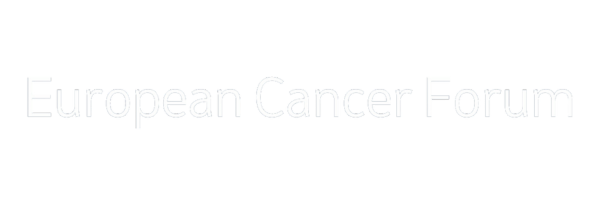The Early Bird Debate
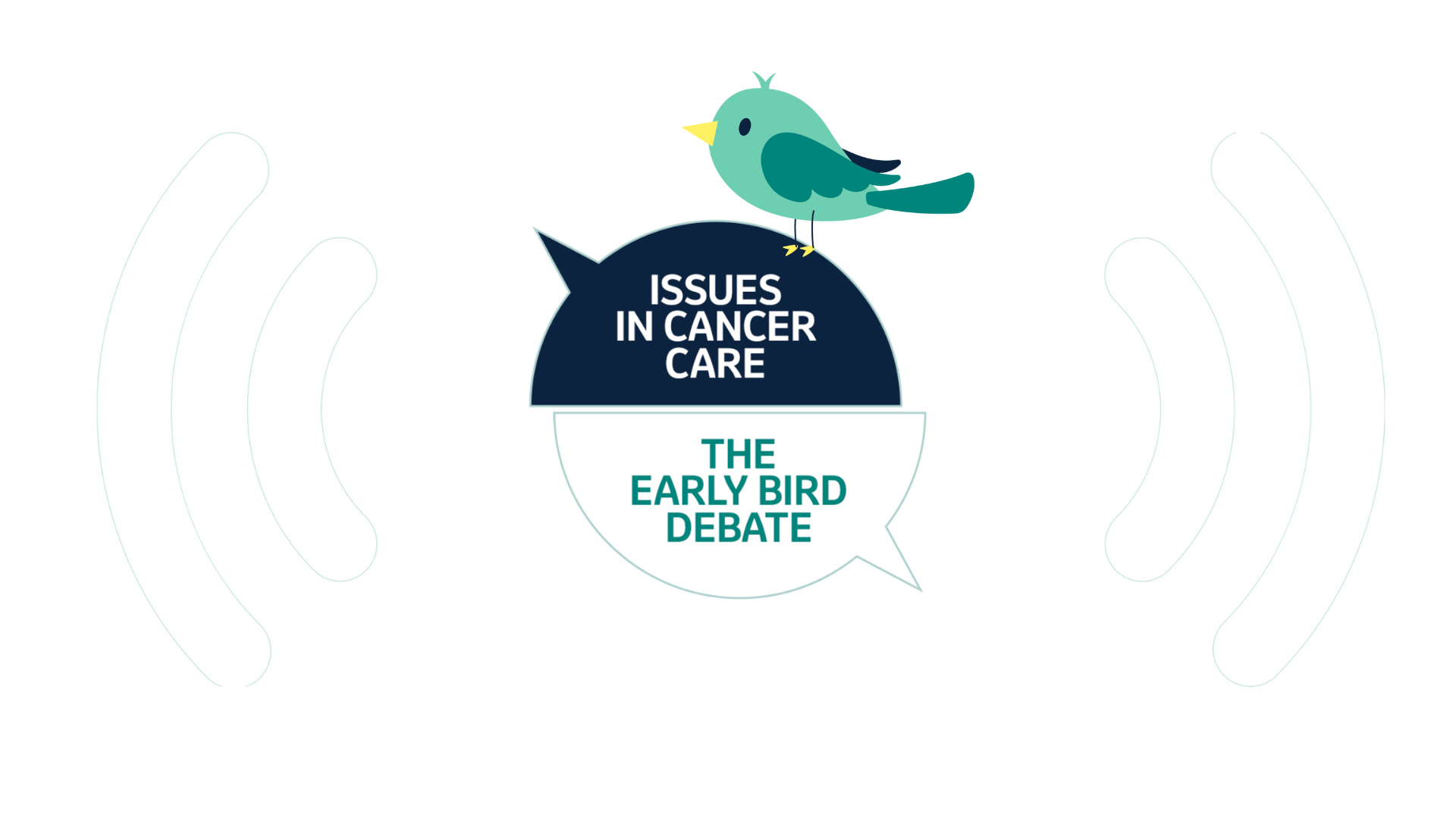
Early Birds Get the Worm
Start your day with engaging discussions between two expert speakers for just 30 minutes each time. The Early Bird Debates are open and frank, tackling even the elephant in the room, all while focusing on cancer policy in Europe.
The latest webinars
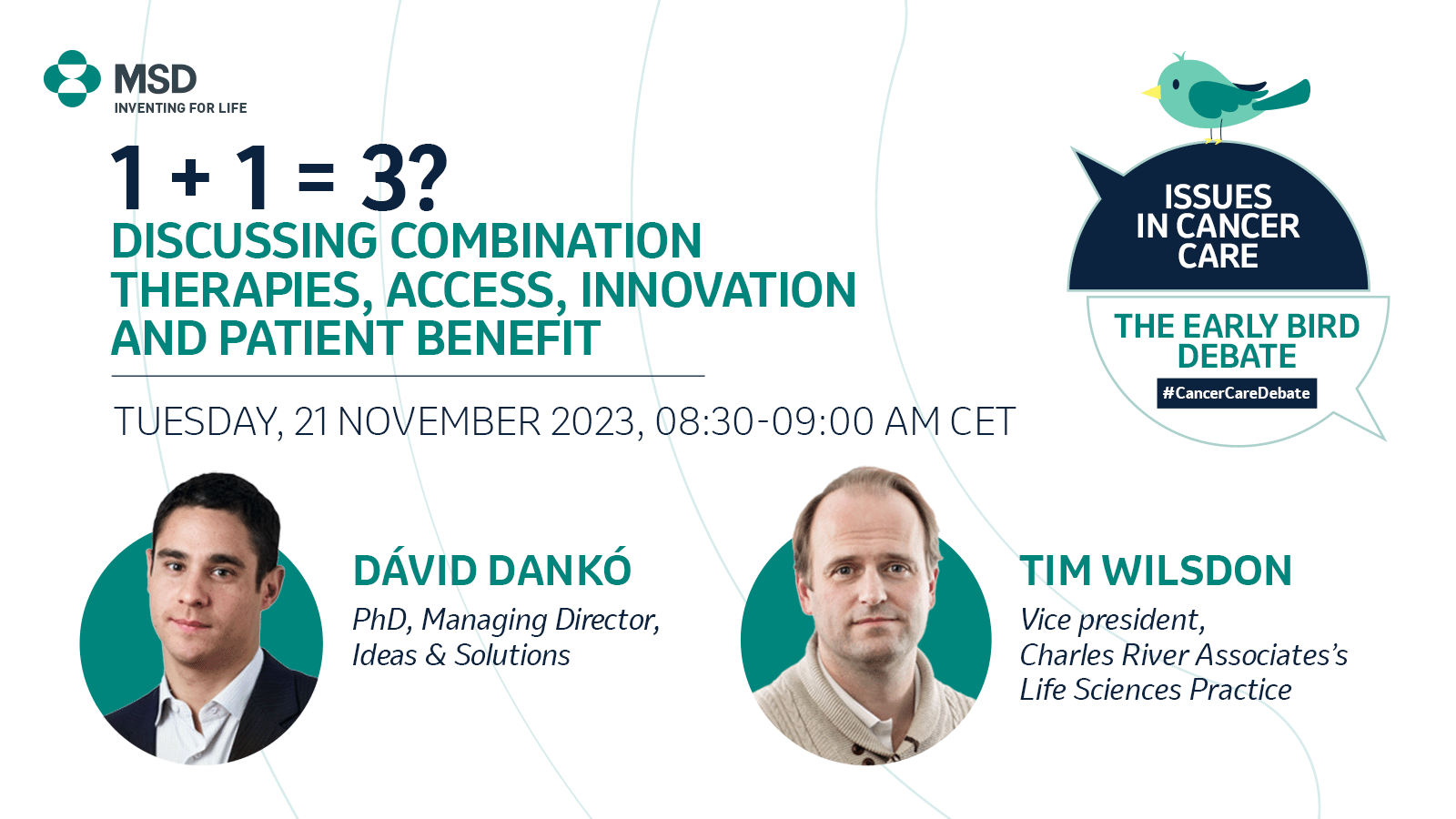
1 + 1 = 3? DISCUSSING COMBINATION THERAPIES, ACCESS, INNOVATION AND PATIENT BENEFIT
Access to medicines across Europe has always been high on the policy agendas, recently also in the context of various legislative revisions. While Member States’ health systems have established processes for traditional medicines, the ever-advancing landscape of science has given rise to new treatments like combinations, stratified treatments with biomarkers, and gene and cell therapies. Unfortunately, the pathways to the patient don’t always match, and health systems’ budgeting cycles are not set up to absorb innovation.
Patient access is everyone’s responsibility. This Early Bird Debate, organized as a teaser event ahead of the European Cancer Forum on December 5th at the Solvay Library in Brussels, promises an exchange about how health systems should adapt and become better prepared for new innovations, such as combinations therapies.
Watch the recording here
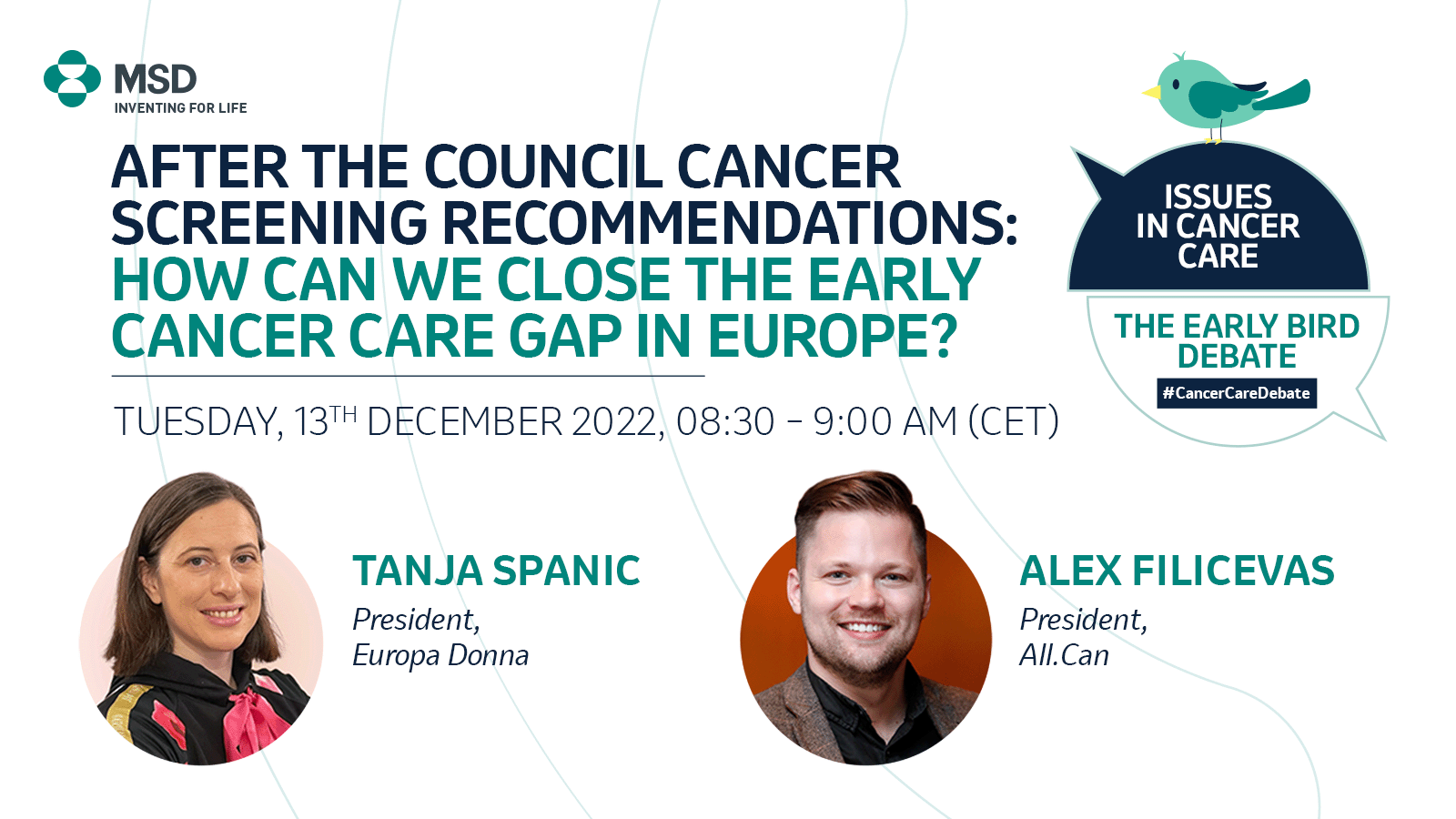
A vision of early cancer care
We often see gloomy headlines about cancer remaining the second leading cause of death globally, accounting for almost 1.3 million deaths in the EU in 2020. But we often forget that the science to beat cancer has been progressing at an unprecedented speed. Cancer screening and more effective treatment have contributed to decreasing mortality, and new technologies such as liquid biopsy and some early-stage interventions will reinforce the trend. Between 2012 and 2018 alone, more than 118 cancer medicines with 164 indications were approved in Europe.
That progress allows us to envision an optimistic future where cancer is detected and treated as early as possible, giving everyone the greatest chance to live cancer free. In this vision, “early” cancer care – early detection, including screening and diagnosis, and early treatment, including timely referral and access to care – is crucial.
Policy action on cancer is at an all-time high in Europe, including the current debate on the updated Council recommendations on cancer screening, but this can only be the beginning. How can we close the early cancer care gap in Europe? How can we ensure radical prioritization of early cancer care, and what else can we do to realize the critical shift toward early cancer care?
Watch the recording here
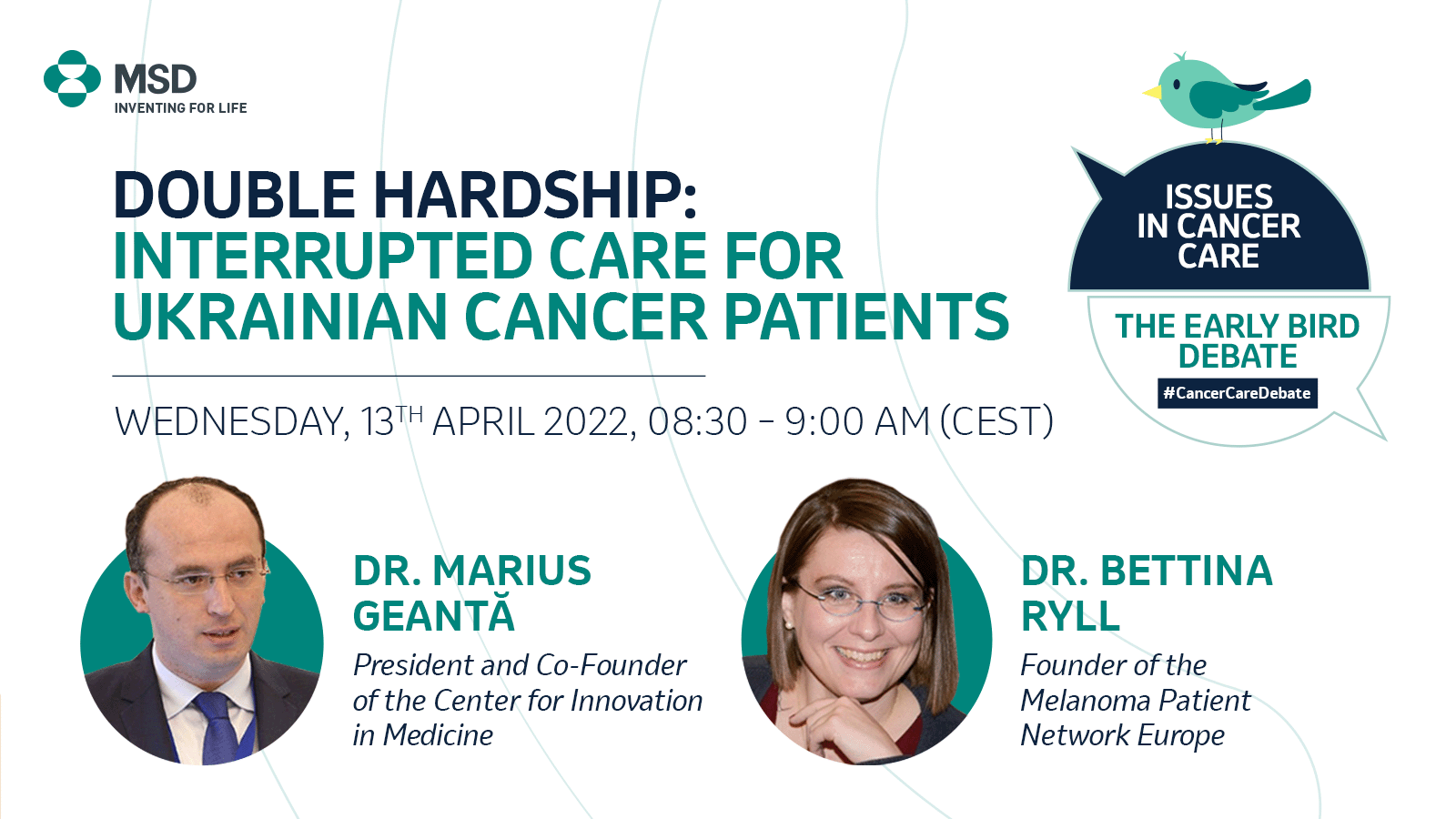
Interrupted Care Cancer Patients
Ukrainian cancer patients are fighting a double hardship: the war with Russia and a life-threatening disease. Continuity of care is paramount for vulnerable patients suffering from chronic conditions such as cancer. However, supply of life-saving medicines, security of health care facilities and safe relocation to centers in Ukraine and to neighboring countries are only a few of the critical challenges they are facing every day.
But they are not alone. International cancer organizations and patient groups are coordinating their responses by pulling together resources that offer immediate assistance to cancer patients and healthcare workers. They are implementing communication networks to answer patient and caregiver questions, collating resources for healthcare professionals, and creating volunteer networks to bridge the language and resource gap.
To advance these efforts and address this challenge effectively, we still need to figure out what key challenges that cancer patients face in times of crises? How has the international cancer care community been supporting those affected by the terrible situation? What still needs to be done to ensure we are providing continuous cancer care in the short and medium term? What could be learned from handling the double hardships?
Watch the recording here
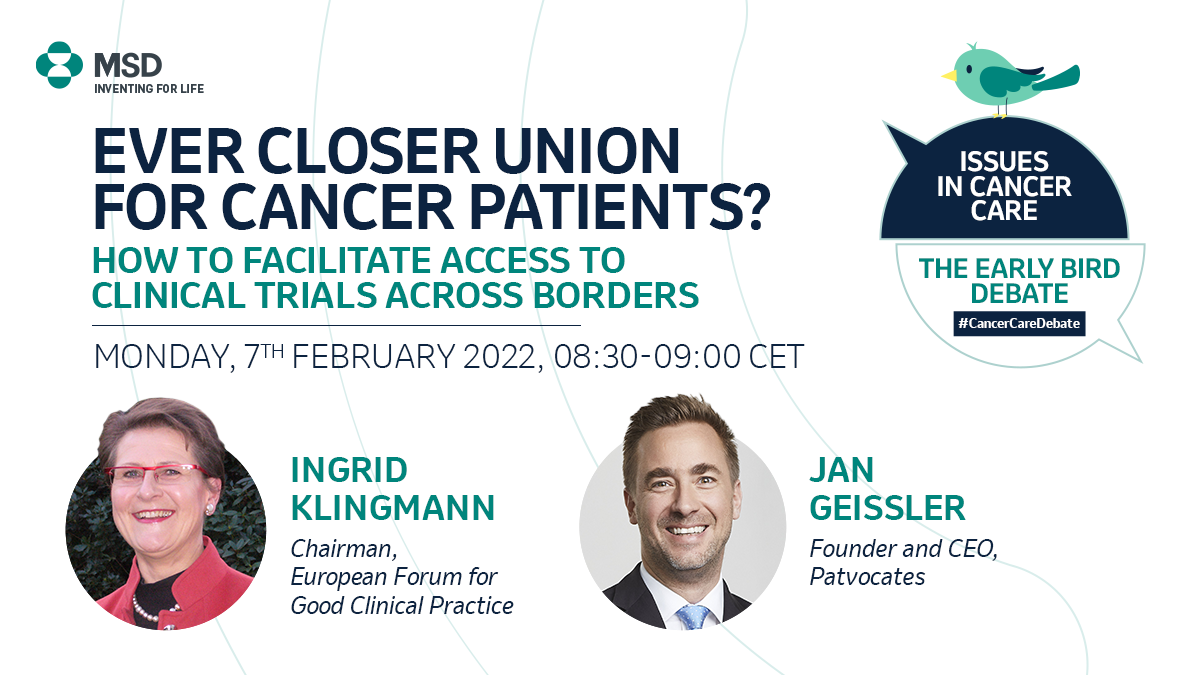
Cross-border clinical trials
Participating in a clinical trial for a new medicine can be the ultimate hope for cancer patients. However, access to clinical trials across borders often remains challenging, even in the European Union: patients are vulnerable and often face high costs, language and cultural challenges, and patients and clinicians must deal with additional legal uncertainties.
The good news is that there is broad consensus amongst European institutions, researchers and their networks, and cancer patients that enabling patients’ access to clinical trials across borders is important. Also, and at just one year old, Europe’s Beating Cancer Plan presents an opportunity to facilitate cross-country clinical trials.
Considering the political will and momentum in Europe, what are practical challenges for patients and researchers to enable more cross-border participation? How can Europe’s Beating Cancer Plan facilitate better legislative, administrative, and regulatory frameworks? What are best practices that can help to find solutions fast enough for patients in need of access to treatments now?
Further information is available in the research carried out by the speakers, Ingrid Kligmann and Jan Geissler, in October 2020: Cross-Border Access to Clinical Trials in the EU: Exploratory Study on Needs and Reality.
Watch the recording here
